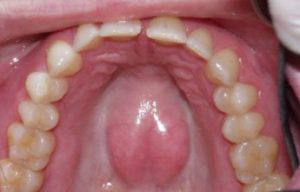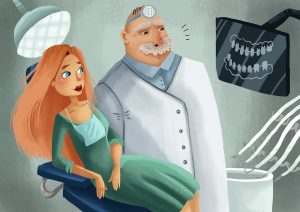I know that a picture is worth a 1000 words, but in the case of Meth Mouth, you’ll have to take my word for it: either that or Google ‘Meth Mouth’ and see for yourself. But be warned, it gets graphic.
 Meth Amphetamine is a stimulant type of street drug that acts on the central nervous system. It tends to cause an irregular heartbeat and high blood pressure. Its appeal is that it causes a rush of energy and euphoria. It is also highly addictive.
Meth Amphetamine is a stimulant type of street drug that acts on the central nervous system. It tends to cause an irregular heartbeat and high blood pressure. Its appeal is that it causes a rush of energy and euphoria. It is also highly addictive.
Prolonged use of Meth is very apparent in the ‘users’ mouth. Their teeth are severely decayed, and often appear darkened, rotting, fractured and eroded – quite sad and shocking to see.
Meth causes the blood vessels in the body to constrict. In turn, this decreases the blood flow to all parts of the body. The blood vessels that supply the mouth shrink. A decrease in blood flow causes the oral tissues to be unhealthy, which in-turn results in poor healing. In addition, due to the decrease in blood flow, the salivary glands in the mouth dry out. The result is Dry Mouth or Xerostomia.
The following are pretty common to see in individuals with Meth Mouth:
1. Dry Mouth (as previously mentioned).
A decrease in salivary flow results in dry mouth. Food debris and plaque are not washed away from the teeth and they end up decaying and rotting.
2. Poor oral hygiene.
An increase in plaque that is not removed from the tooth surfaces combined with a lack of salivary flow will lead to decay.
3. Poor nutrition.
Meth addicts tend to have cravings for foods that are very high in sugar. This combined with one and two above is a sure recipe for tooth decay.
4. Tooth grinding and bruxism.
Meth users tend to clench, grind and ‘brux’ their teeth together. This causes the muscles of mastication to become over-worked. The articular disc of the T.M.J also becomes compressed. Combined, this results in quite a bit of jaw pain and soreness. This may be a good time to refresh your knowledge of T.M.D by reading blogs posted on October 12, 2011 through November 12, 2011.
It is best to treat these patients only when their drug use has stopped. Due to their poor oral hygiene, dry mouth, grinding/clenching and poor nutrition, any dental work we attempt to do, will not hold up.
In addition, as mentioned previously, the drug causes the individual to have high blood pressure and an irregular heartbeat. The local anaesthetics that we give the patient in order to work on their teeth contain epinephrine that may compound with the drugs and cause cardiac problems.
Once the individual is not ‘using’ anymore we can begin to treat them. Treatment would involve:
• Salivary substitutes to deal with the dry mouth.
• Fluoride treatments to decrease the frequency of decay.
• Improve nutrition which includes decreasing the amount of fermentable carbohydrate that is ingested.
• Improve dental hygiene…proper brushing and flossing.
• Increase water consumption. This helps with the issue of dry mouth and also to help wash away food debris and plaque from the teeth.
I hope that anyone who is going through this or any other type of addiction, can find the strength and courage to get the help they need.
Yours in good health,
Dr. F. Keshavarz Dentistry





